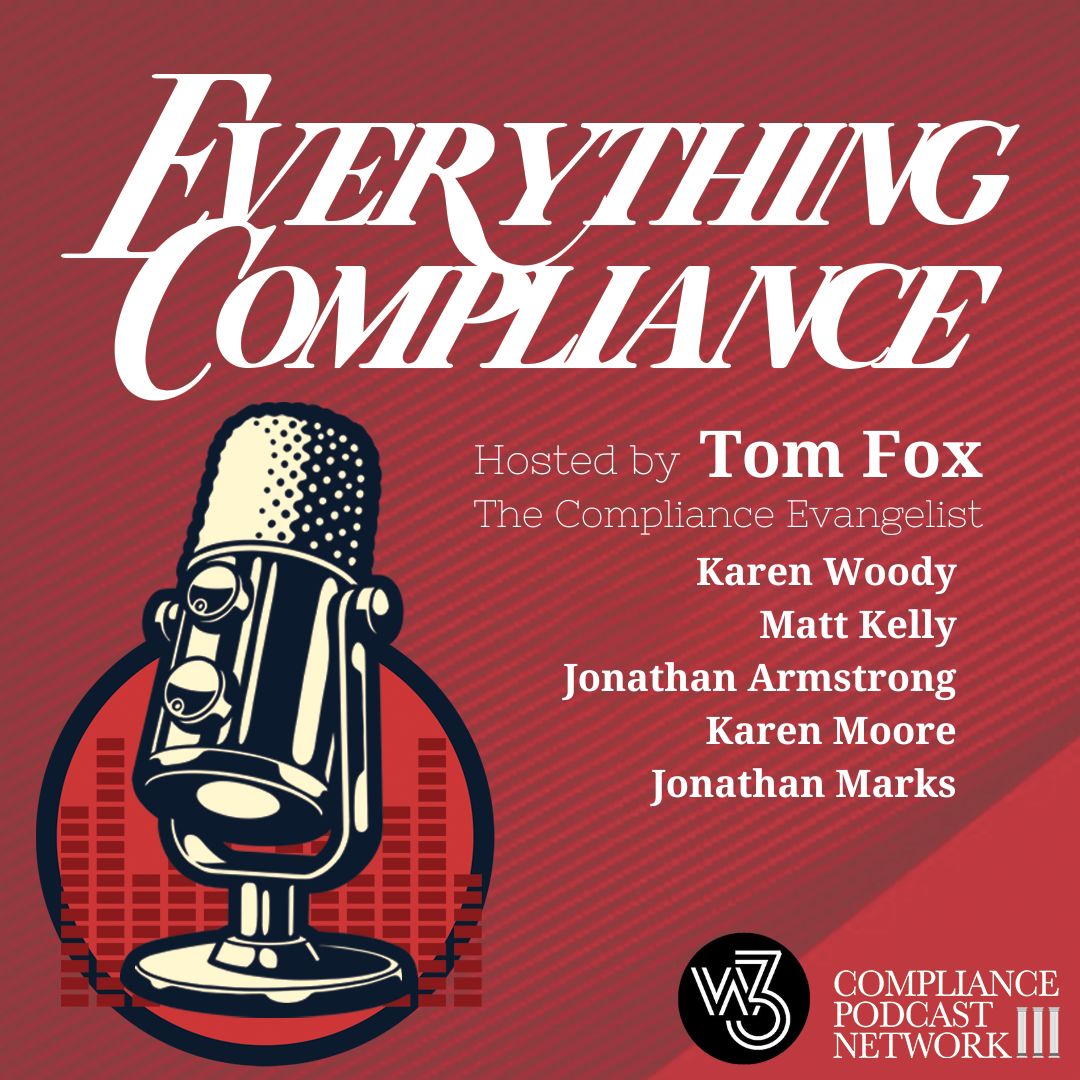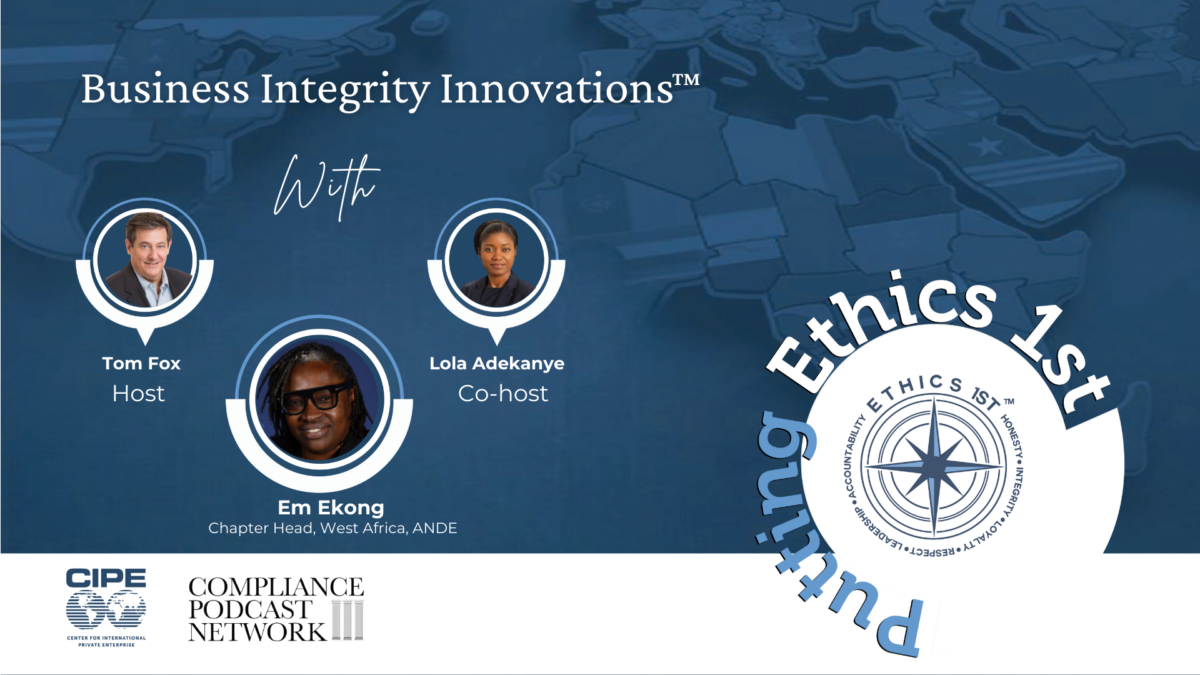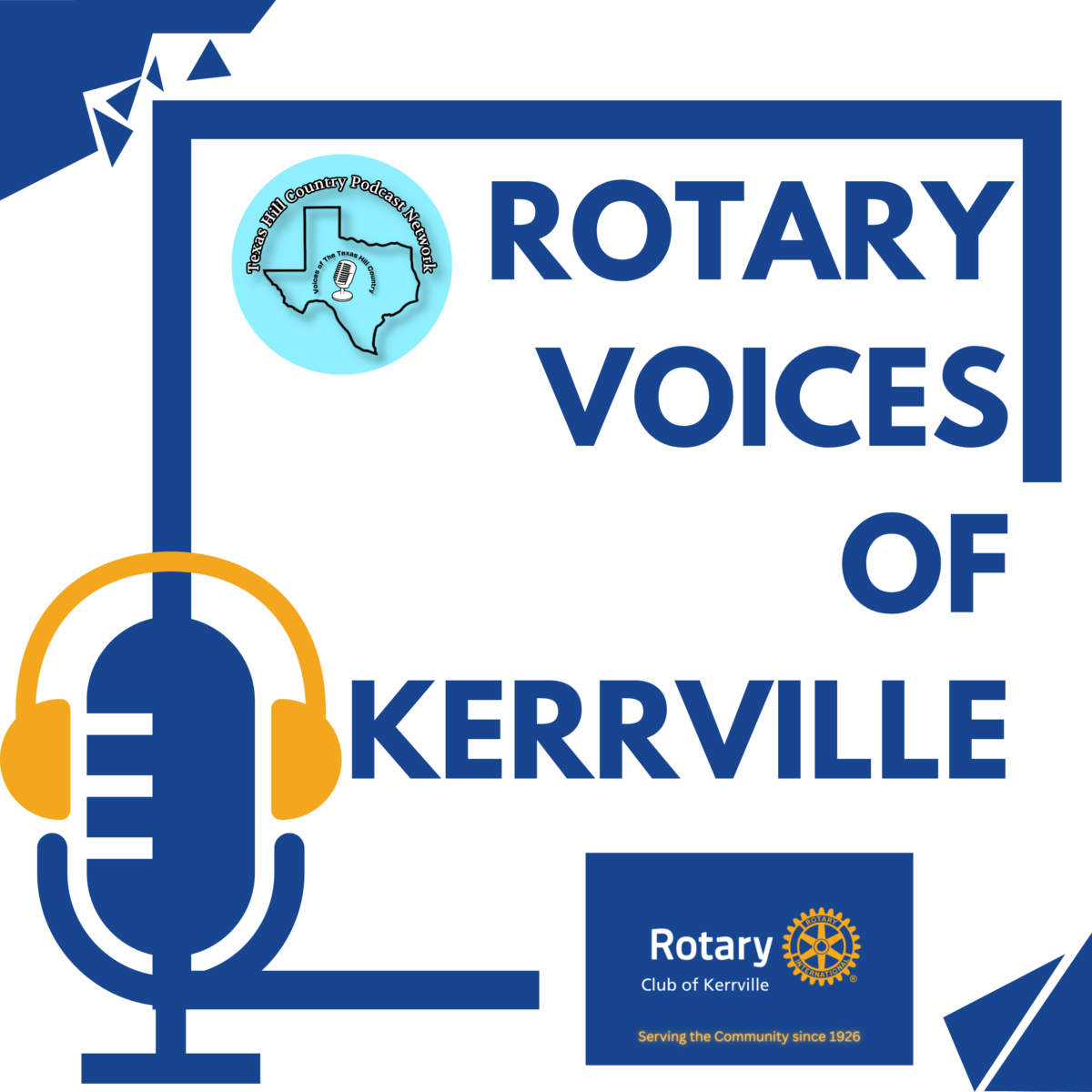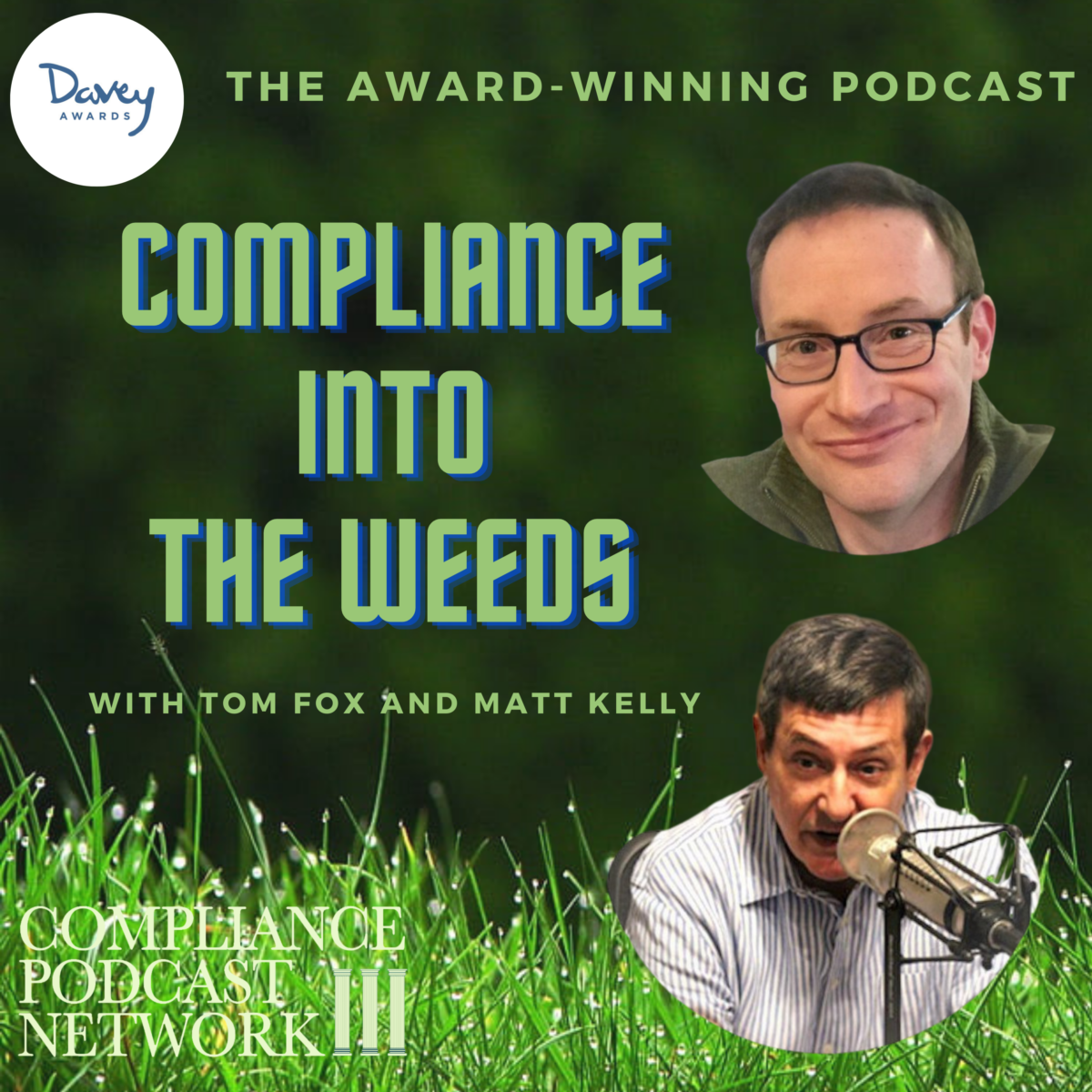Angela Ang is TRM Labs’ senior policy advisor in Singapore. TRM Labs is a world-renowned blockchain intelligence company. She is also a former regulator, having spent over a decade at the Monetary Authority of Singapore (MAS), where she was most recently its deputy director in charge of licensing for payments and crypto service providers. Angela has also been recognized as a LinkedIn Top Voice for Finance in Asia for her thought leadership on digital asset developments in the region.
In this episode of Regulatory Ramblings, she talks to host Ajay Shamdasani about growing up in Singapore, spending time in the US, her education at INSEAD, and ultimately, the early days of her career in a business development capacity at the Monetary Authority of Singapore (MAS) where she promoted the Lion City as an international financial center.
Recalling her experiences as a regulator with fondness, she notes that as a MAS officer, she was privileged to see policymaking at the highest level up close—emphasizing that few jobs enable one to work with ministers and policymakers so early in their careers. Notwithstanding the high intellectual rigor of working for a body as mission-driven as the MAS, she stresses that regulators are people, too.
The discussion then moves on to what TRM Labs does in blockchain intelligence and analytics. Angela describes it: “Blockchain analytics is like Google Maps for blockchain. We help clients make sense of public blockchain data and use it to fight fraud and financial crime.” She points out that while the immutable ledger functionality of a blockchain is invaluable, it is often not easily understood by clients, likening it to “looking at a satellite image without context.” TRM, she says, helps make sense of blockchain ledgers by layering information about entities and their risk levels to give clients a better picture.
In that regard, she sees parallels between her time at the MAS and TRM Labs, which also has a compliance-centric business model and is mission-driven. “A lot of our staff have joined [TRM Labs] from the public sector,” Angela says, lauding the firm’s spirit of nimbleness and entrepreneurialism.
She also recounts her first exposure to cryptocurrencies and blockchain in 2015 when her boss asked her to undertake a research project on the subject as part of the MAS capital markets team. Her impressions then and now are that while there is much to be said for the “promise of blockchain,” they need to be weighed against the “technology and risks of investing in crypto”; Angela recalls former MAS head Ravi Menon’s speech, paraphrasing his central policy point of Singapore saying yes to digital asset innovation, but no to cryptocurrency speculation. She said such an approach was prudent for the Lion City to adopt as “crypto will be around for the foreseeable future.”
She then shared her views on the regulation in Asia, stating that the region is leading the pack regarding regulatory clarity. “There has been more movement in crypto regulation across the region, especially in financial hubs like Singapore and Hong Kong,” she says.
For example, Japan (2017) and Singapore (2020) were amongst the first countries to pioneer bespoke crypto regulation, fully realizing the failures of crypto for the investing public over the past decade, she says. “We need to regulate and think about it [crypto] differently.”
There has been massive movement, for example, Singapore’s rules on custody of crypto assets, expansion of licensing requirements, and Hong Kong’s regulation of over-the-counter crypto trading and its virtual asset service provider (VASP) licensing regime this year.
Yet, with Asian jurisdictions at different levels of development, Angela acknowledges that even with digital assets, every Asian regulator will have their philosophy on how to view crypto. She is broadly optimistic about the direction of things, citing the region’s general move towards greater regulatory clarity.
Citing a deep-dive regional survey by TRM’s policy team, the trend worldwide was overwhelmingly (80%) towards tightening regulation and more consumer protection measures.
“Regulation is about control and the requirements needed to prevent illicit activity. Sufficient enforcement is there to ensure consequences,” Angela said, noting that more levers for action against recalcitrant entities were needed.
She added that the authorities also had the responsibility to deeply understand the technology implementation and controls regulated entities must comply with to ensure they meet the requirements of the regulatory outcomes they have in mind. This also requires having enough skilled people to conduct rigorous supervision as needed.
The conversation then turned to the perceived talent shortage in crypto compliance. While explaining that digital finance was different from traditional finance, she said that older principles of compliance and risk management were still appliable, “but the devil is in the details,” adding: “You need good governance and disclosures; it is the same with traditional finance as with digital finance. There is overlap, but the technology of blockchain and crypto creates differences. For example, verifying ownership of a bank account differs from verifying ownership of a blockchain wallet.”
Technology’s changed landscape also gives rise to the related topics of SupTech and RegTech, which are key parts of what TRM does. As Angela explains, crypto compliance professionals use TRM’s tools for ongoing due diligence and transaction monitoring. Yet, regulators also use TRM’s offerings for RegTech purposes – to obtain real-time information about entities’ activities on the blockchain.
“As regulators build their knowledge of blockchain and crypto, we will see greater opportunities for SupTech applications offering real-time monitoring without adding to the [compliance] burden of regulated entities. The goal of SupTech should be to make tools user-friendly for non-experts such as non-cryptographers and non-asset tracers,” she said.
TRM Labs’ data shows that the total amount of crypto crimes emanating from Asia was US34.8 billion, but that is still just 0.63% of the global total. Angela notes that figure is comparable to traditional finance while acknowledging that crypto is borderless and that organizations and syndicates operate across borders across and from Asia.
She says VASPs have evolved to respond better to crypto crime, citing the loss of trust in recent years. “They are winning it [trust] back. As the industry matures, with more governance and compliance, they realize their role in fighting crime,” she said, emphasizing TRM’s role in working with the public and private sectors.
Angela stresses that VASPs have lower rates of crypto crimes with proper licensing and mandated risk controls than in less regulated jurisdictions. While noting that there are different degrees of risk controls, “few exchanges in the world now exist with no risk controls,” she says. Those are high-risk exchanges and conduits for bad actors moving outside regulated parameters. Most exchanges have degrees of risk control, and there has been a leveling up of crypto regulation worldwide.”
Looking ahead, she pointed to market misconduct as an evolving area in digital finance. The Madrid-based International Organization of Securities Commissions (IOSCO) FinTech Taskforce has singled it out as a priority item for crypto regulators, she says.
Regulatory Ramblings podcasts is brought to you by The University of Hong Kong – Reg/Tech Lab, HKU-SCF Fintech Academy, Asia Global Institute, and HKU-edX Professional Certificate in Fintech, with support from the HKU Faculty of Law.
Useful links in this episode:
You might also be interested in:
-
Must have book by Ross Buckley, Douglas Arner & Dirk Zetzsche – FinTech: Finance, Technology & Regulation
-
Building Better Financial Systems: FinTech Sustainability – Research
-
HKU-SCF Fintech Academy – website
-
Asia Global Institute – website
-
Most sought after Fintech course on edX – Introduction to Fintech
Connect with RR Podcast at:
LinkedIn: https://hk.linkedin.com/company/hkufintech
Facebook: https://www.facebook.com/hkufintech.fb/
Instagram: https://www.instagram.com/hkufintech/
Twitter: https://twitter.com/HKUFinTech
Threads: https://www.threads.net/@hkufintech
Website: https://www.hkufintech.com/regulatoryramblings
Connect with the Compliance Podcast Network at:
LinkedIn: https://www.linkedin.com/company/compliance-podcast-network/
Facebook: https://www.facebook.com/compliancepodcastnetwork/
YouTube: https://www.youtube.com/@CompliancePodcastNetwork
Twitter: https://twitter.com/tfoxlaw
Instagram: https://www.instagram.com/voiceofcompliance/
Website: https://compliancepodcastnetwork.net/
















